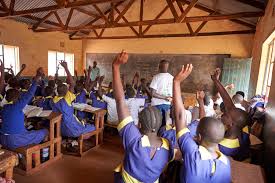Nigeria’s Minister of Education, Tahir Mamman, recently announced a policy to restrict the admission of under-18 candidates into tertiary institutions starting in 2025. This decision has sparked a nationwide debate around the intersection of age, maturity, and access to higher education.

The move to set a minimum age for university admission is aimed at ensuring that students are mature enough to navigate the academic demands and responsibilities of tertiary education. However, critics argue that age-gating tertiary education might overlook the underlying issues within the country’s education system and limit opportunities for young, capable individuals.
Nigeria’s education model, allows children to begin school at the age of six, with six years of primary and secondary education, culminating in students being expected to reach the age of 18 upon completing their secondary education. However, loopholes in the system, such as early exam sittings and accelerated academic pathways, have resulted in some students seeking admission to tertiary institutions at the age of 15 or 16.
While setting a minimum age for university entry could theoretically encourage personal development and preparedness among students, it raises questions about the efficacy of secondary education in nurturing critical thinking, practical life skills, and career guidance. The current curriculum in Nigeria has been criticized for its emphasis on rote learning and a lack of focus on essential skills like financial literacy, time management, and decision-making.
Furthermore, the policy disregards the individual differences in maturity levels, with some individuals at 16 exhibiting the maturity and readiness expected of an 18-year-old. By imposing a blanket ban on under-18 admissions, the policy risks depriving capable and motivated students of their right to pursue higher education.
Comparative perspectives from education systems in the UK, the US, and Canada highlight the diverse approaches to primary and secondary education, indicating that age alone may not be a sufficient metric for assessing a student’s readiness for university. In the US, mechanisms such as grade skipping and individual assessments allow for flexibility in determining a student’s academic and emotional preparedness for higher education.
To address the concerns raised by the proposed age restriction, Nigeria could consider integrating elements of flexible assessment and tailored support for students, ensuring that their readiness for tertiary education is evaluated holistically. Additionally, reforms in the secondary education system, including a focus on practical life skills, career counseling, and exposure to personal development opportunities, could better equip students for the rigors of university life.
It is evident that while the intention behind age-gating tertiary education is to foster maturity and preparedness, the implementation of such a policy must take into account the diverse educational experiences and individual circumstances of students. As Nigeria continues to deliberate on this issue, stakeholders are calling for a balanced approach that promotes access to higher education while addressing the underlying challenges in the country’s education system.
The debate over age-gating tertiary education in Nigeria reflects the complexities of balancing maturity expectations with access to higher education. As the nation navigates this discourse, a comprehensive evaluation of the secondary education system and the individual needs of students should guide the development of inclusive and effective policies for university admission.



